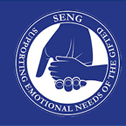Document Type
Article
DOI
10.25774/xcet-3v14
Abstract
Emerging themes in an interview-based qualitative study of dominant-culture teachers’ beliefs about giftedness in the late 1900s reflected that behavior, verbal assertiveness, family status, a strong work ethic, and social skills mattered most. In a similar study in five culturally and linguistic diverse (CLD) communities at that time, themes differed from community to community, and collectively from the teachers'. Findings are pertinent to the underrepresentation of CLD students in gifted-education programs currently because teachers continue to be gatekeepers when asked to refer students for programs and what they value matters. The research approach is also of interest. The methods used in these studies were effective for exploring teachers’ ad hoc rationale when nominating students for special programs, and the findings provoke thought about why underrepresentation remains so intractable. Current implications for educators involve policy, philosophy, selection and programming.
Recommended Citation
Peterson, J. P. (2023). A Counselor Educator Situates Two Seminal Studies in the Cultural Values and Underrepresentation Literature 30 Years Later. SENG Journal: Exploring the Psychology of Giftedness, 2(1), 38-56. https://doi.org/10.25774/xcet-3v14

